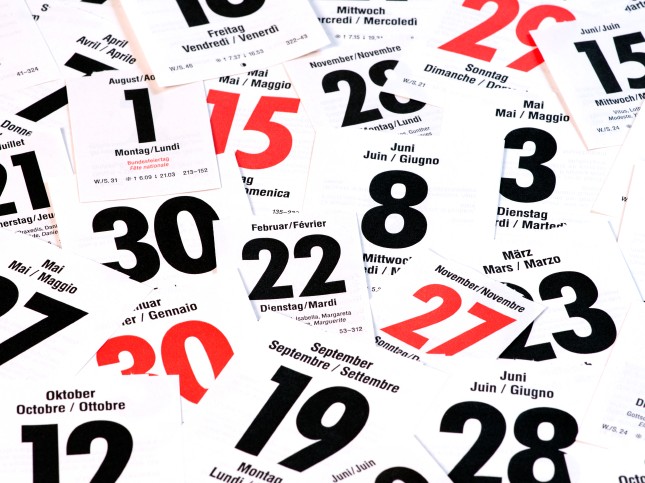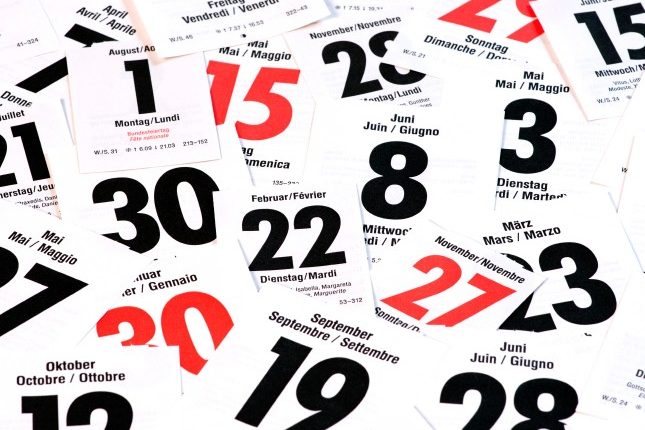Carpe Diem! Seize the Day!
 This simple Latin phrase has come to define the thrust of our modern age – live life to its fullness; go for it; do it now! But does it accurately capture the importance of each day to Jews? At the least, does it remind us that days are not like seconds on the clock, ticking away, one indistinguishable from another. There are so many days that we single out in our calendar, days imbued with particular holiness that they demand particular ritual and observance. But certainly, these days are particularly holy and each and every day demands an urgency on the part of Jews. But not simply to satisfy our temporal wants. Each day merits… no, demands… the urgency of holiness. Yet it is often a “special” day that causes us to pause and appreciate what it means to truly “seize the day” each day.
This simple Latin phrase has come to define the thrust of our modern age – live life to its fullness; go for it; do it now! But does it accurately capture the importance of each day to Jews? At the least, does it remind us that days are not like seconds on the clock, ticking away, one indistinguishable from another. There are so many days that we single out in our calendar, days imbued with particular holiness that they demand particular ritual and observance. But certainly, these days are particularly holy and each and every day demands an urgency on the part of Jews. But not simply to satisfy our temporal wants. Each day merits… no, demands… the urgency of holiness. Yet it is often a “special” day that causes us to pause and appreciate what it means to truly “seize the day” each day.
There are two Torah commandments whose obligation is constant and ever-present, to learn Torah and to repent. The Torah is clear about this urgency in the Sh’ma: “These words, which I command you this day, make them as a sign upon your heart and between your eyes…”
Our Sages comment that the word hayom, “this day” means that “the Torah should be ever fresh in your mind, as though you received the Torah today.”
This matter of the urgency of days and Torah is fresh in our minds as we turn our attention to S’firat Haomer and the coming of Shavuot. For what more concrete example of the importance of Torah and the power of days than the counting down from the end of Pesah to the Chag Matan Torah? Our counting of days is an anticipation of what is to come… and yet, what are we counting towards? We celebrate the revelation at Sinai, yet the chag is not even named in the Torah. Does this diminish the power of that day at Sinai? Not at all. It simply teaches us that the commemoration of the giving of the Torah must not be limited to a particular time. It applies at all times . This day is each and every day is matan Torah. As it is written, “This day the Lord thy God hath commanded thee to do these statutes and judgments.”
The joy and satisfaction of Torah study must not be limited to special days, or occasions. It is to be ongoing, continually renewed and continually renewing. Torah study must always spiritually excite and emotionally uplift.
For the thoughtful Jew every day is a Yom Matan Torah. Embracing this attitude might also help us understand Lag B’Omer, the thirty-third day of the counting of the Omer when, according to the Talmud, the plague that caused the death of 24,000 disciples of Rabbi Akiva finally abated.
24,000 brilliant young scholars! Lost! Why? According to Talmudic and Midrashic sources, they died because they did not sufficiently respect one another. Their scholarship, Torah learning, and erudition were taken for granted. For them, Torah learning was pursued as if any other knowledge, without an excitement, enthusiasm, and fire resulting in new insights, renewed motivation, and novel ideas. They reveled in their brilliance rather than the brilliance of Torah. They were “satisfied” with their learning, not challenged or enlivened by it.
Their learning was no different than the “counting” of days rather than the “seizing” of days.
Lag B’Omer came to be known as “Scholar’s Festival” to remind those who devote themselves exclusively to the pursuit of Torah learning that there is more to Torah learning than the “quantity” of knowledge. Torah learning encompasses the “quality” of learning, the love and devotion for fellow students, an excitement for the Divine word, a reaction to learning Torah that is to be likened to that of Matan Torah.
This is Carpe Diem! to the Jew, to make each day of learning like Yom Matan Torah. The responsibility to do so rests not only with students but with their teachers as well. Teachers must reflect and ask, Am I seeking new methods and exciting approaches for our Torah presentations? Am I creative and innovative in my Torah methodology and curriculum?
Students must learn, but teachers must teach as we want our students to learn, with enthusiasm and holiness, so that each day is a unique experience for students. They should leave their classrooms as our forefathers departed from Sinai – awed and inspired.
Each and every day.
Carpe Diem.
Rabbi Dr. Eliyahu Safran serves as OU Kosher’s vice president of communications and marketing.

